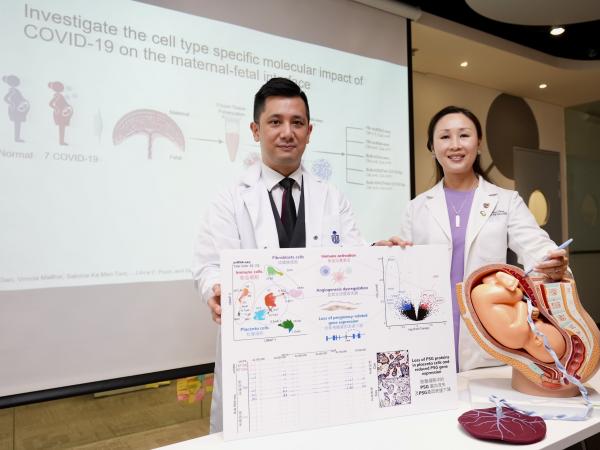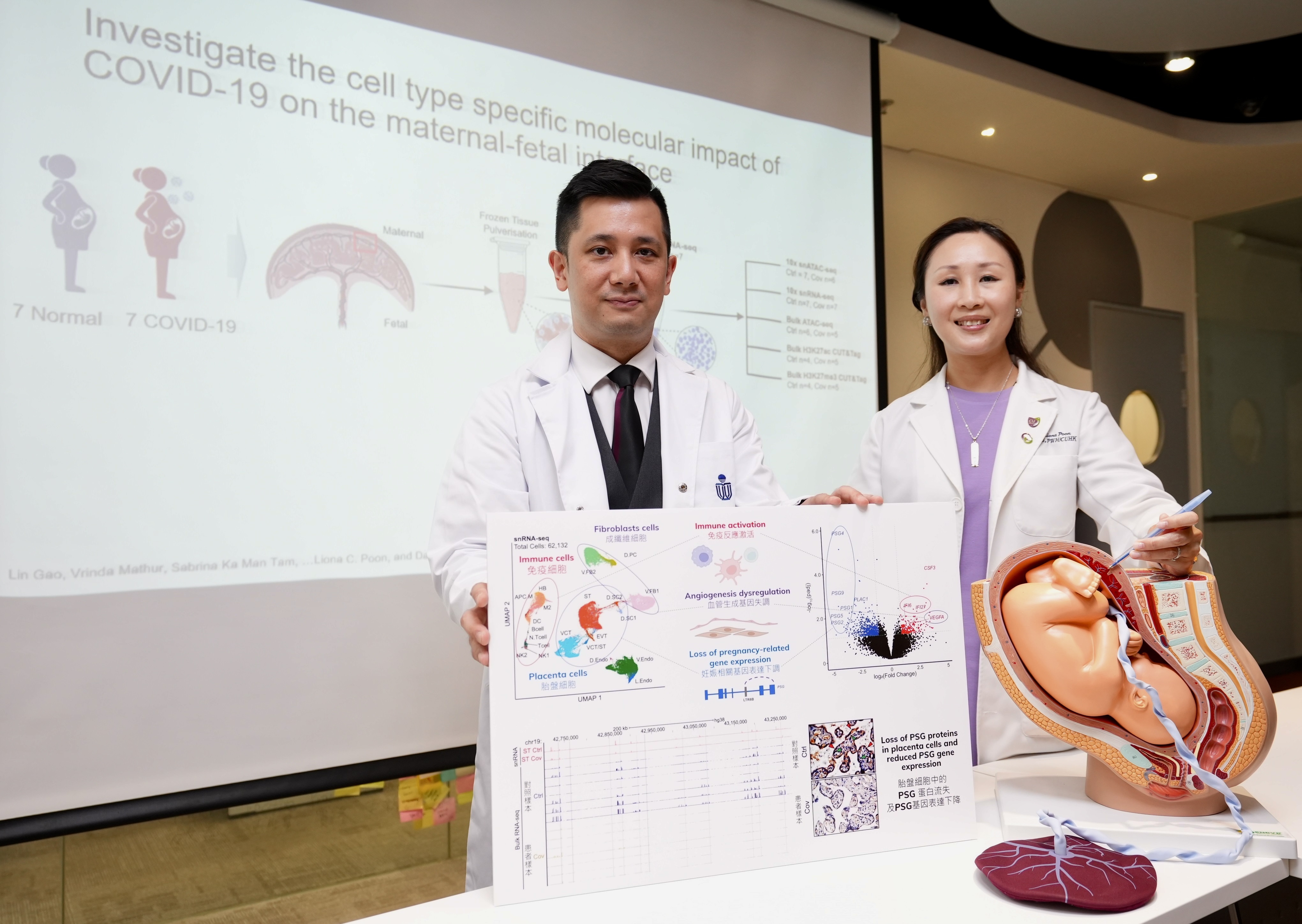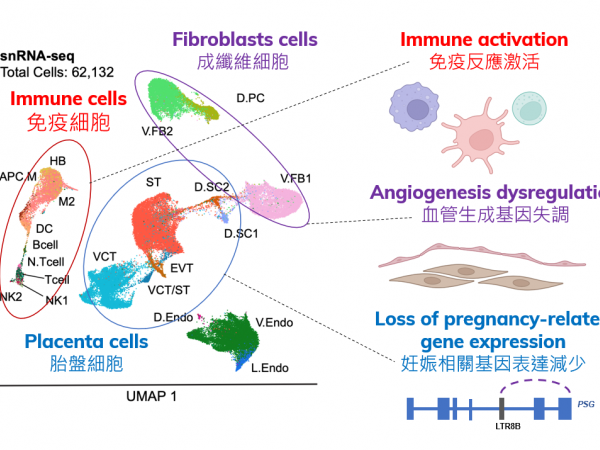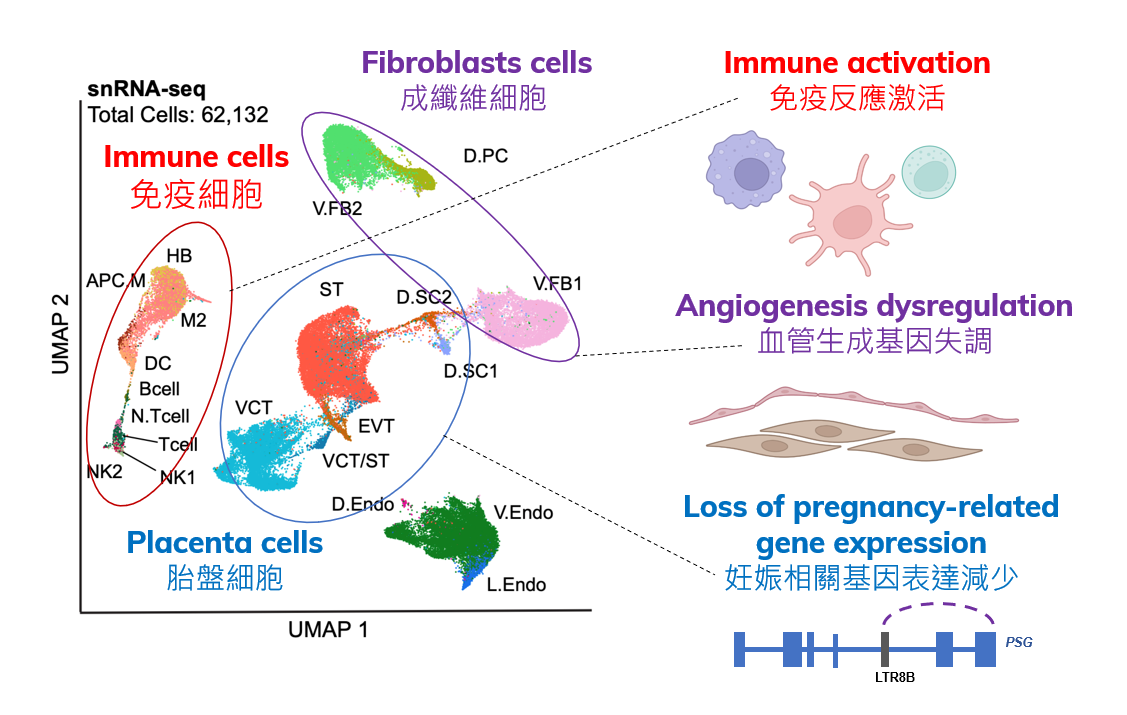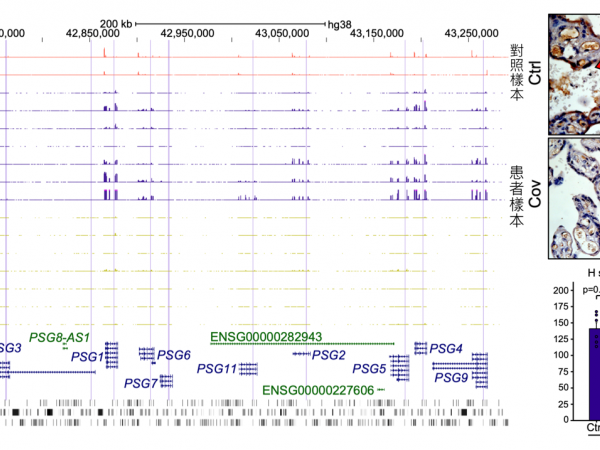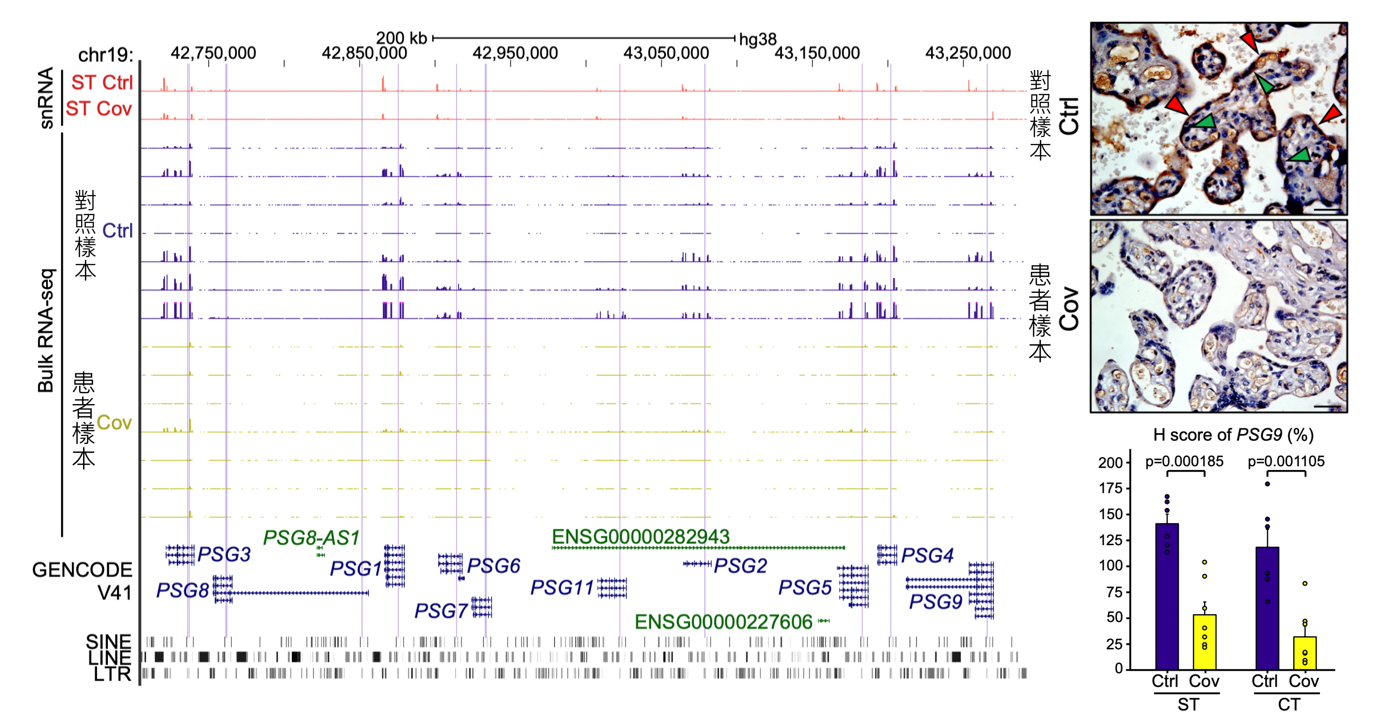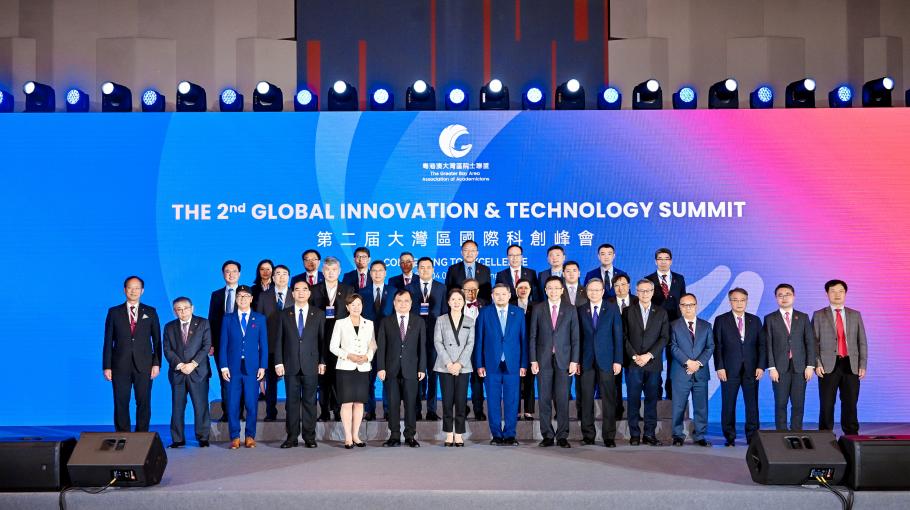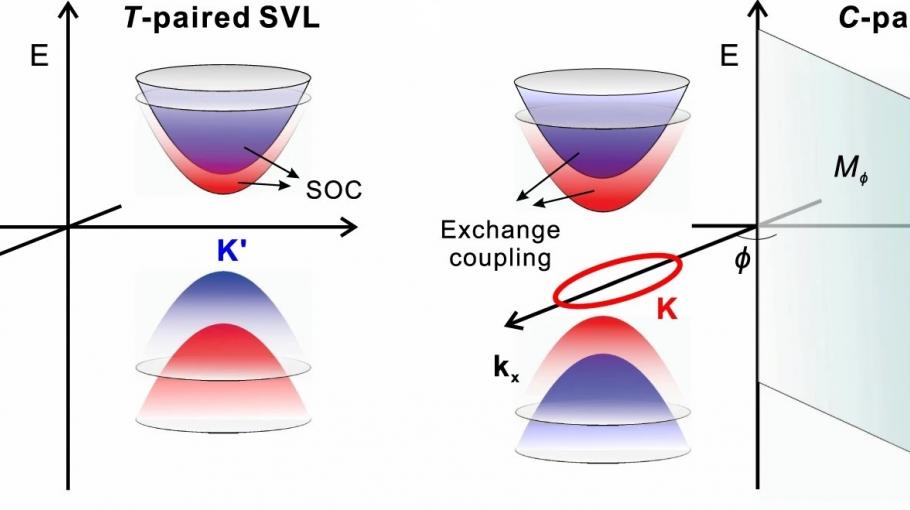The Hong Kong University of Science and Technology (HKUST) and The Chinese University of Hong Kong (CUHK) today unveiled ground-breaking research that sheds light on how COVID-19 infection may lead to late pregnancy complications. The study reveals significant alterations in gene regulation within the placenta, paving the way for the development of potential molecular targets in future treatments to mitigate the detrimental effects of COVID-19 on maternal and fetal health.
Prior research involving 2,219 pregnant women with SARS-CoV-2 infection from various countries or regions, including Hong Kong1, has demonstrated that SARS-CoV-2 infection increases the risk of pregnancy-related death, severe maternal morbidities, and adverse fetal and newborn outcomes. In another study, a higher prevalence of preterm birth has been observed in pregnant women with SARS-CoV-2 infection. This increased risk is particularly pronounced among those who contract the virus during their third-trimester2, as compared to those who remain uninfected during pregnancy. Furthermore, a total of 142,561 cases of pregnant women with COVID-19 were reported in the United States between April 2020 and December 2022. The findings revealed that 11.21% of their infants born to these mothers were delivered preterm, and 9.7% required admission to the neonatal intensive care unit3. Despite these findings, the underlying molecular mechanisms driving the increased risk of adverse pregnancy outcomes associated with COVID-19 remain to be fully understood.
The research team, led by Prof. Danny LEUNG, Associate Professor of the Division of Life Science and Director of the Center for Epigenomics Research at HKUST, and Prof. Liona POON, Chairperson of Department of Obstetrics and Gynaecology at CUHK’s Faculty of Medicine, examined molecular changes at maternal-fetal interface (MFI), where the mother's body interacts with the developing fetus, following SARS-CoV-2 infection. Analyzing MFI samples from seven COVID-19 patients and seven healthy donors, the team discovered that SARS-CoV-2 infection triggers a significant increase in the immune response at the MFI. This heightened response is linked to the upregulation of interferon-related genes, which could expose the fetus to inflammation, hypoxia, and oxidative stress. Concurrently, the study identified dysregulation of angiogenesis genes at the MFI, potentially leading to abnormal blood vessel formation within the placenta and fetal growth restriction. Importantly, the observed molecular changes are likely due to the way the mother's body responded to the virus when she first got infected, rather than the virus directly affecting the MFI tissues in the placenta.
The researchers also found that SARS-CoV-2 could affect placental development by impacting the regulation of pregnancy-related genes in specific placenta cells. The study identified that genetic elements called retrotransposons are dysregulated in placenta cell types, resulting in the downregulation of pregnancy-specific glycoprotein (PSG) genes. These genes play crucial roles in processes such as the placenta’s ability to develop blood vessels into the mother's uterus, immune modulation in the placenta, and placental development, all of which can impact fetus health.
Prof. Leung said, “Our DNA serves as the blueprint for all biological processes. The precise activation and repression of genes are vital for normal growth and development. In diseases, genes are mis-regulated, causing errors in our normal physiological mechanisms. Therefore, in order to understand a disease and its impact on our cells, we must elucidate the alterations to gene expression patterns. Over the past two years, my laboratory and our collaborators have been dedicated to unraveling how SARS-CoV-2 influences gene expression and the subsequent consequences. Our findings contribute to a deeper understanding of the molecular mechanisms underlying COVID-19-related pregnancy complications without direct viral infection. This knowledge offers critical insights for future development of targeted interventions to mitigate the risk of adverse pregnancy outcomes associated with COVID-19 infection. Additionally, our work has provided insights into how epigenetic dysregulation of the PSG genes may contribute to pregnancy complications in other pregnancy-associated disorders, laying the groundwork for further studies on the role of PSG genes in other diseases and infections during pregnancy.”
Prof. Poon said, “During the pandemic, through epidemiological studies, we learned that pregnant patients with COVID-19 had increased risks for receiving critical care, mortality and pregnancy-specific morbidity including hypertensive disorders of pregnancy and embolic disease, and that infants born to women with COVID-19 were more likely to be preterm and have low birthweight. Now, our study has provided clues on how COVID-19 affects the placenta, thus causing a number of pregnancy complications. So our initial concerns regarding the negative impact of COVID-19 on maternal and perinatal outcome are real and therefore primary prevention is the key in order to reduce such risks. For women planning to get pregnant or who are pregnant, please get vaccinated timely. As we are coming out of the pandemic, the desire to get tested goes down, I would suggest that pregnant women with symptoms must get tested by the rapid antigen test and inform their healthcare providers so that relevant advice and antenatal follow up, including increased fetal growth surveillance, are provided.”
Their findings were published in the scientific journal Nature Cell Biology on July 3, 2023.
1 A meta-analysis led by the George Washington University represents 12 studies including 13,449 pregnant women from around the world. Information from 2,219 women with confirmed SARS-CoV-2 infection in pregnancy during Mar 2020-May 2021 was included.
2 According to a US study published in 2022, the prevalence of preterm birth in people with SARS-CoV-2 infection in pregnancy was higher (14%) relative to national baseline data (10.0–10.2%), particularly among people with third trimester infection.
3 From the data of Centers for Disease Control and Prevention on the maternal and infant characteristics among
women with confirmed or presumed cases of COVID-19 during pregnancy.
About The Hong Kong University of Science and Technology
The Hong Kong University of Science and Technology (HKUST) (https://hkust.edu.hk/) is a world-class research intensive university that focuses on science, technology and business as well as humanities and social science. HKUST offers an international campus, and a holistic and interdisciplinary pedagogy to nurture well-rounded graduates with global vision, a strong entrepreneurial spirit and innovative thinking. Over 80% of our research work were rated “Internationally excellent” or “world leading” in the Research Assessment Exercise 2020 of Hong Kong’s University Grants Committee. We were ranked 2nd in Times Higher Education’s Young University Rankings 2023, and our graduates were ranked 30th worldwide and among the best from universities from Asia in Global Employability University Ranking and Survey 2022. As of early 2023, HKUST members have founded 1,645 active start-ups, including 9 Unicorns and 11 exits (IPO or M&A), generating economic impact worth over HK$400billion. InvestHK cited QS World University Rankings by Subject 2021 to demonstrate the performance of five world’s top 100 local universities in several innovation-centric areas, among which HKUST ranked top in four engineering and materials science subjects.
About the Faculty of Medicine, The Chinese University of Hong Kong (CU Medicine)
CU Medicine was set up to meet the needs of society by providing graduates with the professional development and knowledge that equips them to be caring and competent medical practitioners. As a young medical school established in 1981, the Faculty ranks top 3 in Asia and 32nd globally in the QS World University Rankings by Subject 2023.
We have a team of over 1,200 full-time teaching and research staff from 19 departments/schools covering the entire range of research and clinical disciplines. We encourage collaboration between scientists and clinicians across disciplines and specialties, and remain at the forefront of the translational medicine revolution. Our Faculty members excel in tackling challenging health problems, making impact on patients’ lives and the wider society.
CU Medicine has won an internationally renowned research reputation for its encouraging environment for the effective pursuit of world-class research as well as remarkable contributions from team members.
More information about CU Medicine is available at http://www.med.cuhk.edu.hk .
For media enquiries, please contact:
Public Affairs Office, HKUST
Johnny Tam
Tel: 2358 8556
Email: johnnytam@ust.hk
Janice Tsang
Tel: 3469 2512
Email: janicetws@ust.hk
Media and Communications, CU Medicine
Ruby Tam
Tel: 3505 2891
Email: rubytam@cuhk.edu.hk


